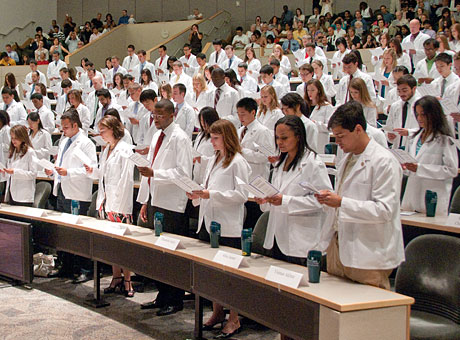
Identifying at-risk medical students
Study focuses on factors that may hinder physicians-to-be

Students who enter medical school with high debt levels, low scores on the Medical College Admissions Test (MCAT) or who are non-white are more likely to face difficulties that can prevent graduation or hinder acceptance into a residency program if they do graduate,
according to a nationwide study.
The research, conducted by Washington University joint principal investigators Donna B. Jeffe, PhD, research associate professor of medicine, and Dorothy A. Andriole, MD, associate professor of surgery, was reported in the September 15, 2010 issue of the Journal of the American Medical Association.
The study of more than 84,000 students who entered U.S. medical schools from 1994–99 showed that by 2009, nearly 89 percent performed very well: They graduated from medical school and passed two key medical licensing exams on their first try. However, 11 percent either left medical school or graduated but had not passed one or both of the licensing exams on their initial try, which can hinder residency placement.

Dorothy A. Andriole, MD
The study’s findings are particularly important as medical schools nationwide are increasing enrollment and diversity to meet the country’s growing health care needs.
The researchers say more study is needed to identify and address underlying factors that contributed to the outcomes they observed. Next they plan to study how medical school debt, among other factors, influences the kinds of careers new doctors choose.






